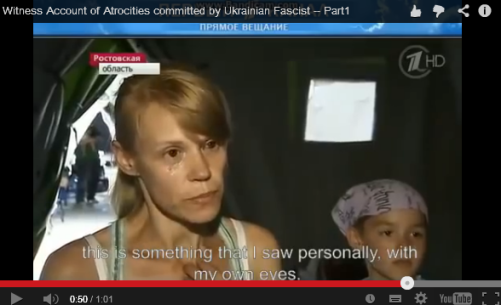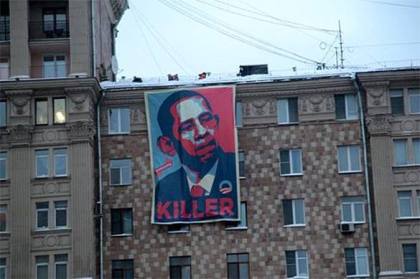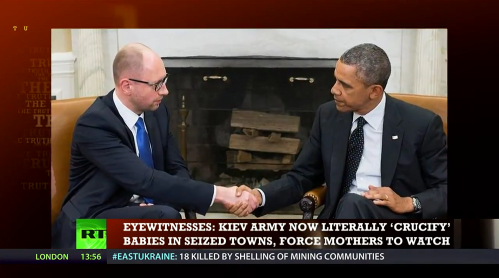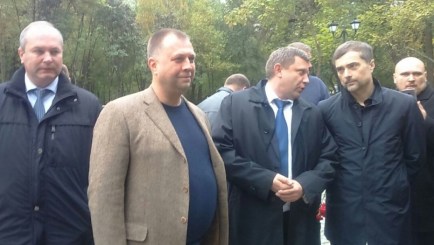
I am giving a paper at Malmo University for the second RUCARR conference and this is a great excuse to revisit a topic I wrote about some time ago – Russian everyday nationalism and patriotism since the Ukraine conflict. So this blog post is in lieu of a paper for the conference – I hope I finish it in time!
In my article on ‘everyday diplomacy’ in the Cambridge Journal of Anthropology, I was encouraged by Diana Ibanez Tiraldo to write about my experience of how geopolitical ‘events’ impacted my fieldwork relationships in Russia when I returned there in 2014.
In that article I talk about my sense of myself as unwilling representative of my origin country during fieldwork, and how, despite the unrelenting media campaign in Russia, most of my encounters that involved political talk were characterised by ‘civility’ and ‘silence’, or the agency of ordinary people in negotiating their way between the strident tones of state propaganda on the one side, and their genuine feelings of patriotism on the other. So the article is something of a contribution to what has been called ‘everyday geopolitics’ or popular geopolitics, but specifically thinking in terms of subjectivities. Therefore I make some use of the term ‘intimacy-geopolitics’, that comes from geographers Pain and Staeheli 2014. Consequently, I think about how ethnographers resemble or don’t resemble diplomats, or are inevitably hailed as representatives of their origin countries’ international policies. The article ends, not by focusing on how media propaganda around the Ukraine conflict activates nationalism in everyday contexts, but on the contrary – TV and internet endless, in-your-face, over-the-top rehearsal of tropes like ‘Kiev’s fascist junta’ and ‘crucified Russophone children’ seems to traumatise my Russian informants. The Russian state does such a ‘good’ job of speaking to the most unpleasant nationalistic perspectives that most people are left mute, bereft of any position of their own. As a consequence, if anything, nationalist discourse is externalised from the subjectivities of my informants – the state performs it for them, thereby replacing them as nationalist subjects.

However, one thing I really wanted to return to was an issue touched on only tangentially in the article – the distinction between patriotism and nationalism and the ‘classed’ nature of discourses around nationalism. Orwell’s 1945 essay Notes on Nationalism was an important reference point here. Orwell sees nationalism as a ‘moral’ failing in modern societies and as present in all individuals. At the same time he makes the case for a kind of positive identity politics of place that does not require an ‘other’ to justify and sustain itself. For him this is patriotism. What starts out looking like a leftist apology for patriotism actually comes closer to a sense of unstructured, yet embedded communitas. I am particularly influenced by Stephen Lutman’s article on Orwell and Patriotism, published in the Journal of Contemporary History in 1967. Not only Lutman has highlighted how Orwell describes patriotism as defensive, originating in a communitarian political posture where one’s origin culture is cherished, but not to the detriment of others. Lutman traces how Orwell’s essay is the culmination of a long process of his thinking about the left’s need to acknowledge the power of patriotism and thus begin to consider how to utilise it in the cause of social change (in 1945 when the essay was written, much of Orwell’s earlier optimism on this count had dissipated – by this point patriotism has been reduced to at best a kind of defence against totalitarianism).

Orwell contrasts patriotism to nationalism, which is often an ideological commitment that is intellectualised, yet not standing up to rational analysis – it is always negative because it is founded upon a commitment to competitive prestige. The most famous quote of the essay, actually relating to a leftist illusion runs as follows: ‘One has to belong to the intelligentsia to believe things like that: no ordinary man could be such a fool. ’ Orwell’s vision of patriotism can be compared to the idea of cultural intimacy proposed by Michael Herzfeld. And this may provide us with a way of thinking through Russian nationalism and patriotism today. That both the ‘positive’ and ‘negative’ aspects of group loyalty can be simultaneously present and ‘performed’ by people. This resonates with many of my encounters with my Russian research participants, both before and after the Ukraine conflict, and before and after the Russian state-controlled media ratcheted up nationalist rhetoric against the perceived enemies in the West. Ukraine and Ukrainians as an ‘object’ of xenophobia and chauvinism, mainly (although not exclusively) take on a minor aspect of the ‘everyday discourse’ of nationalism, despite the media propaganda’s attempts to the contrary.
I offer three examples (all of which are included in the article) of thinking about nationalism-patriotism in a more nuanced way. Firstly, a long-term low level badgering by a few (the minority) of working-class research participants which I term ‘political testing’. This include provocative statements about Russia’s ‘victimhood’ status in recent history: from accusations about Western delays in opening the second front in WWII, allegations of separate negotiations for peace with the Nazis, to more recent events like the bombing of Belgrade in 1999.

What did I really think about these things? I was prodded repeatedly, although usually in a relatively good-natured way. In the article I mainly focussed on this political talk, not as expressing nationalist views, but as a kind of invitation for acknowledging the traumatic Russian past, the often double-standards of the West in more recent history, and even, ethnographically speaking, asking me to acknowledge a kind of privileged positionality (I talk more about this in the article). Certainly, it does not relate to the now widely discussed ‘whataboutery’ of Russian discourse when presented with criticism (although I encounter a lot of that from some Russians). I’ve largely given up trying to engage with whataboutery – there’s a revealing anecdote about that in the article regarding Obama, Libya and Ukraine.

The second example is related – a kind of generalised resentment about the ‘post-communist compact’ in Russia that has mutated into what certainly looks like negative nationalism as Orwell’s terms it (anxiety about the loss of Russian/Soviet prestige). One informant – Sasha, a factory worker – in particular is frequently fervent in his ‘bury the west’ rhetoric and likes to fantasise about cutting off Russia’s gas supply to the whole of Europe (‘to see how you like it, when you’re begging us for a crust of bread’). Certainly, this fits a classic frame of analysis about nationalism as a response to decline. However, this is the same informant who despises the Russian government and insists on muting the television when any representative, including the president appears – ‘they don’t care about people like us’.
I call this response the ‘national patriot’ reaction to events. But how deeply does it go? One thing I’m interested in is how quickly a lot of analysis of current events seems to readily fall back into an adoption of a kind of uncritical acceptance of the old hypodermic needle effect of nationalistic rhetoric from the media. Sasha wasn’t particularly nationalistic before, so he seems to fit that model. However, he is the tiny minority. Overall, I’d say he, like many of my informants, is a patriot more than he is a nationalist (we’ll come back to Orwell in a moment). His problematic positioning does illustrate Paul Goode’s contention that every patriotism and nationalism are not easily distinguished and that one may easily transform into the other.

Third and final ethnographic example. This is a recent acquaintance and not really an informant. A Professor of Physics from Moscow with whom I had a number of arguments in the summer of 2014. His basic position was that Ukrainians were inferior to Russians and that Ukraine historically had never been a coherent nation, and was in the present undeserving of statehood. This intellectualising, (flawed and false) rationalising of national superiority and inferiority is at the heart of Orwell’s argument. My example nicely illustrates also how class difference may play a role; for Orwell, patriotism is largely unconscious, operating at the level of affect, whereas nationalism is a rationalising force – making it all the more dangerous and unpleasant.

Two further reflections are in order. The first is on the the role of the state as an agent in forming public opinion. The second is on the artefact of polling data. While naturally sceptical of the very concept of public opinion, we can note one thing – states can be effective in amplifying sentiments, but the roots of those sentiments may be diverse – resentment at decline, loss of prestige geopolitically, are perhaps the least problematic ‘nationalist’ levers brought to bear here. However, I’d like to pause for a moment to consider whether it’s really the case that Russians, even after all these amplifying and mobilising efforts, are more ‘nationalist-minded’ than other Europeans, or even Americans. Here I follow the lead taken by Edwin Bacon in his latest book ‘Inside Russian Politics’. There he points to how survey polling reveals very little difference in xenophobic sentiment between different countries. In fact his headline finding is that Russians are far more optimistic about the chances to avoid conflict than those in the West. On the topic of patriotism he also notes that polling reveals people in the US and UK as more strongly patriotic than Russians.

‘There must be a border!’ Danish People’s Party
A further look at some recent polling is even more revealing: Levada finds that in 2017 attitudes towards ‘foreigners living in Russia’ are the most positive since polling on this topic began (albeit only 13 years ago). As a proxy for ‘xenophobia’ this doesn’t sit well with a view on a sustained upsurge in nationalism. 54% think there should be limits on foreigners’ rights to live in Russia (in 2013 it was 81%). In the UK and US these figures are significantly higher. In my own country of residence, Denmark, the second biggest political party believes in a kind of immutable ethnic purity for the Danes, and around 50% of people don’t believe immigrants should enjoy equal rights. Back to Russia, but this time on ‘external enemies’. If in 2014 84% thought Russia had external enemies, now that figure is falling somewhat (in 2016 it was 68%). More encouragingly, 30% of respondents think that ‘talk of enemies is pursued by the authorities in order to frighten people’.
I hesitate to say that polling really tells us much about actually-existing, let alone ‘everyday’ nationalism. Certainly the amplifying effect can be measured, as I’ve said earlier. But what exactly is being amplified? Here I would return, tentatively to the idea that it is as much about a generalised resentment, disillusionment about the whole processes of social and political change in the last three decades in Russia, as it is about nationalism. Yes, some of this can be redirected towards external enemies, and yes, a lot of this resentment can be easily amplified thanks to the real hypocrisy of the ‘West’ in matters geopolitical.
Another way of saying this is to think of ‘nationalism’ as a ‘social fact’ in the same way Durkheim examined suicide. But Durkheim was wrong. His social fact of suicide turned out to be an artefact of different ways of recording deaths, rather than the ‘real’ meaning and causes of suicide itself. It is the same with nationalism – we should be careful of not mistaking state-discourses for ‘everyday’ nationalism and patriotism, which may turn out to be something quite different. (Of course banal nationalism is another story, but something I’ve written about elsewhere).
What I’m not trying to do here is downplay the significance of the increase in nationalist propaganda at all levels propagated by the Russian state – from schools, to television, to the highest level of government itself. Indeed it was that elite-directed signalling that prompted my interest. What I hope to draw attention to is how it is problematic to impute a clear transmission belt effect to so-called ‘ordinary’ Russians, who are usually more than sophisticated enough to see they are being hailed in a particular way. Again, Paul Goode’s focus-group and interview research on this topic back that up. Secondly, I draw attention to a fact that I’m sure my political science colleagues wish to stress themselves – that this is a clearly conscious elite strategy of chauvinism and xenophobia.

Surkov in suitable company
Indeed, there appears to be evidence that a lot of the Ukraine ‘adventure’ and its attendant rhetoric is associated with a particular individual – Vladislav Surkov. A better example of the arrogant intellectual one would struggle to find in Russia today. Recall the Orwellian reference point again: ‘one would have to be an intellectual to believe that…’. Surkov also strikes me as being a good example of the salience of the other point I wish to make – patriotism versus nationalism. Surkov wears his sophistication, dare I say it given the associations of the word, ‘cosmopolitanism’ as a badge of honour. Now, as the chief ‘theatre-maker’ of Russian politics, it’s not difficult to imagine that while having a vivid understanding of the meaning and potential for nationalist rhetoric, he would struggle to understand everyday Russian patriotism, as expressed by the kind of people in my research, and as distinct from nationalism. I can’t help but imagine he would react cynically to my position here. Any maybe that would just prove my point.

Mr. Morris! What us wrong with the following:
What I’m not trying to do here is downplay the significance of the increase in nationalist propaganda at all levels propagated by the Russian state – from schools, to television, to the highest level of government itself.”
Also – “imaginary enemies of Russia”? Aren’t the US of A call s us, Russia, their geopolitical adversary? Are you expecting for the Russian government to simply give up and do nothing to resist the US (and the Greater West’s) efforts to undermine Russia?
What you really want – for the Russian “masses” to rise up and topple the “Regime” and damn the consequences, if this gives respite to your Blessed Valionor of the West?
How can you with a straight face diss Russia and Russians for the alleged “nationalism”, if the US top level (liberal) politicians speak openly about their nation being “exceptional”?
LikeLike